Near Palomtrina, North-East of Remas
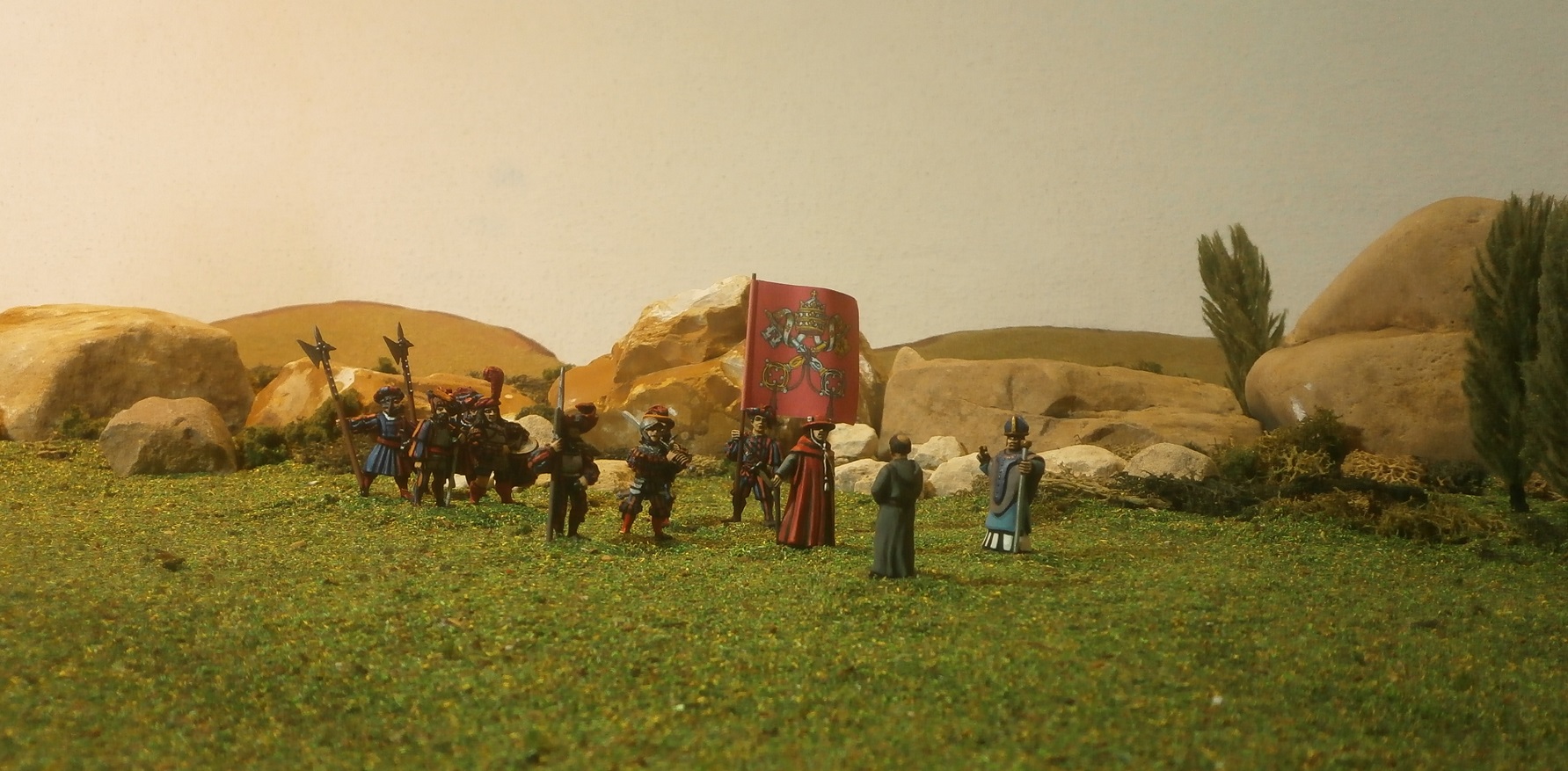
After three hours of blessing the dead, praying with the wounded and praising the soldiers for their brave service, and all this immediately after commanding his army in battle against a veritable horde, his holiness Bernado Ugolini was beginning to flag. When a messenger begged for an audience, he was too tired to know if he was grateful for the distraction or frustrated at yet another matter requiring his attention.
Bernado could not recall the messenger’s name but knew the young cleric had been assigned to the maestro’s staff, due to his particular interest in natural philosophy.
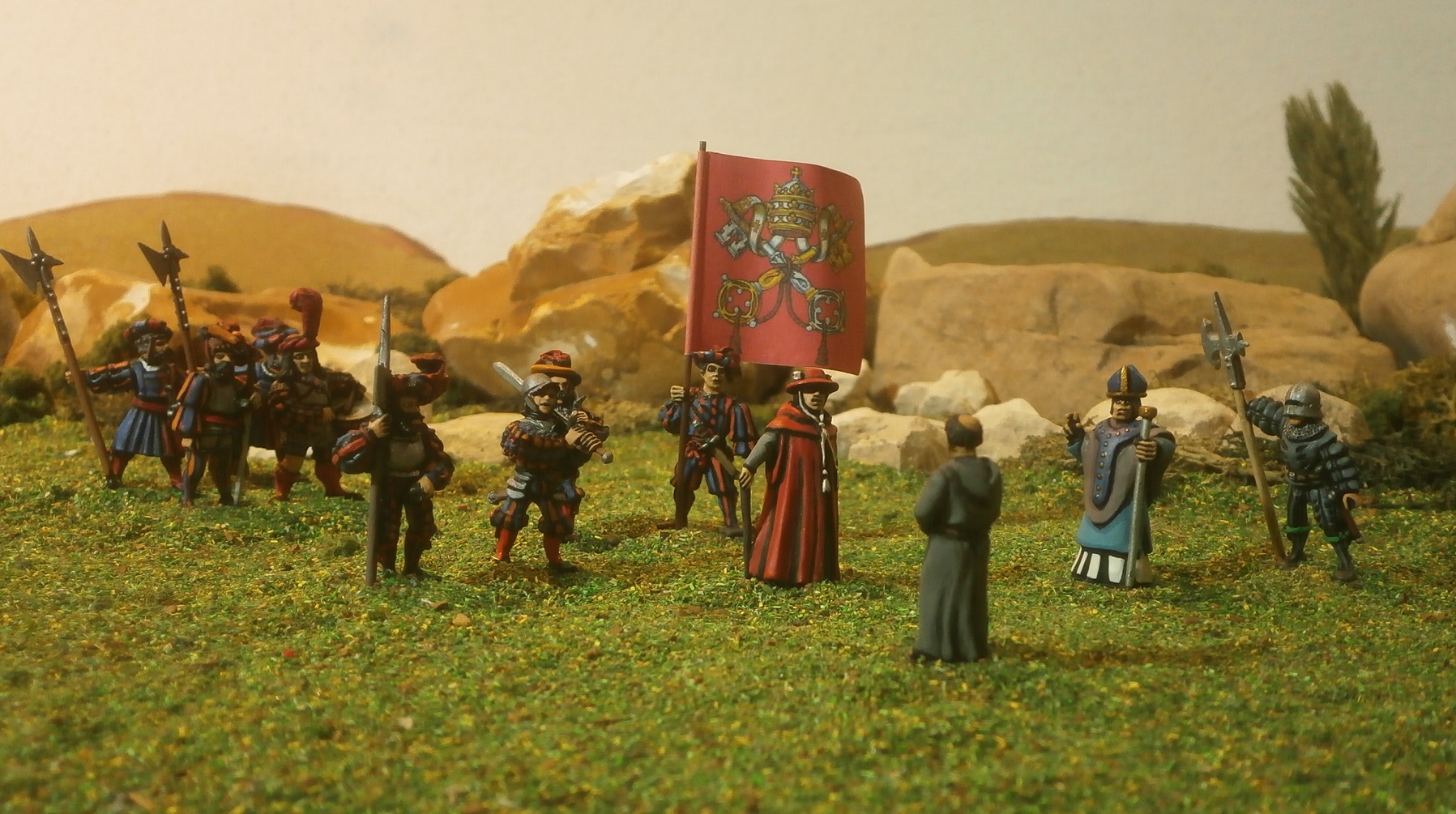
“Well met, good father,” said Bernado. “You have something to tell me?”
“Yes, your holiness. His honour, da Leoni, asks that you attend him, concerning a matter of considerable importance.”
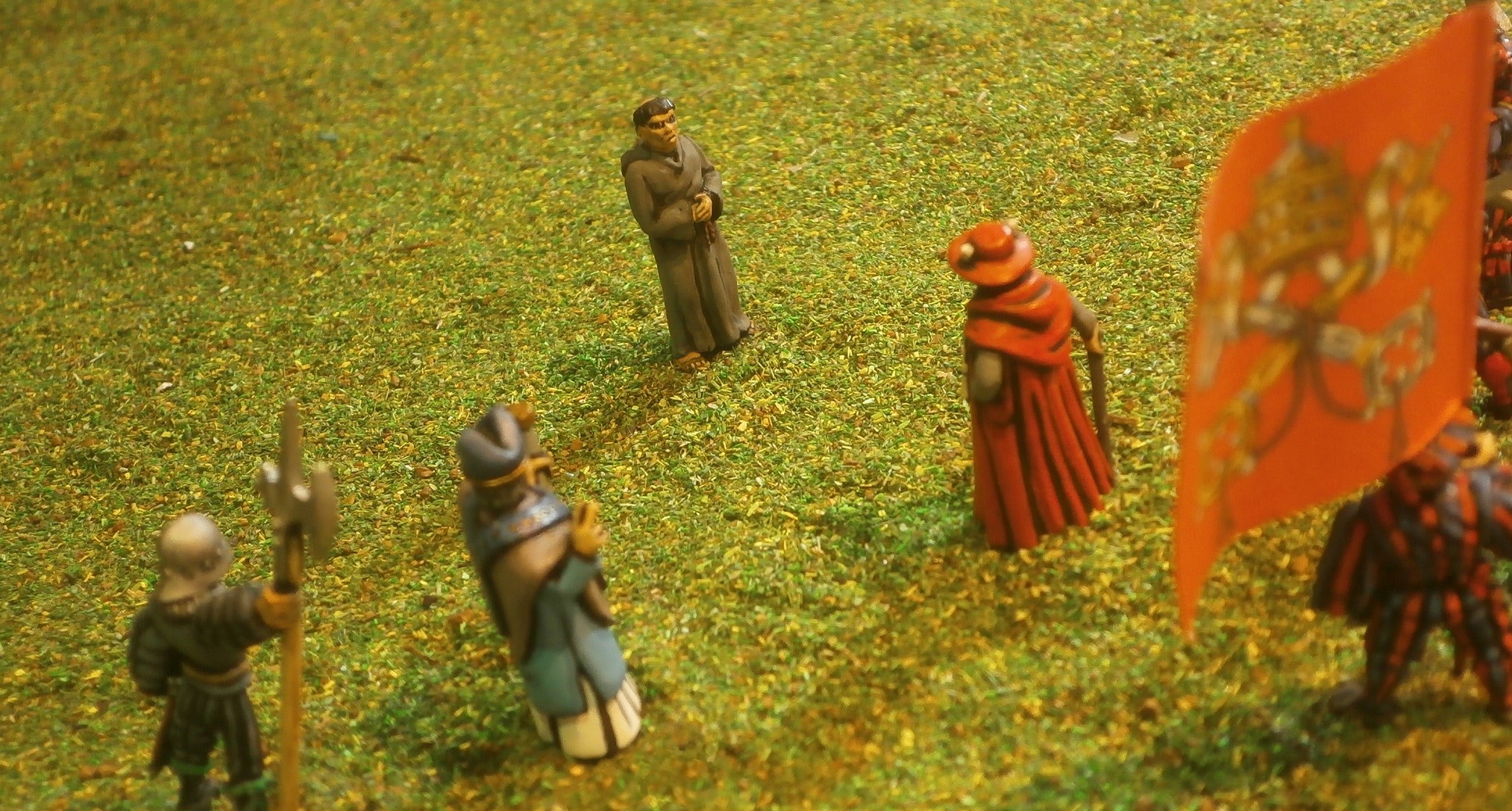
Since the battle ended, as far as Bernado knew, the maestro had been inspecting the enemy’s doom-bombard, the terror weapon they had hauled from their underpasses to threaten the lives of every Reman citizen.
Before he could speak, the high priest of the Mercopian church, Flavio Tognazzi, asked the messenger,
“The maestro – I take it, he is still with the engine?”
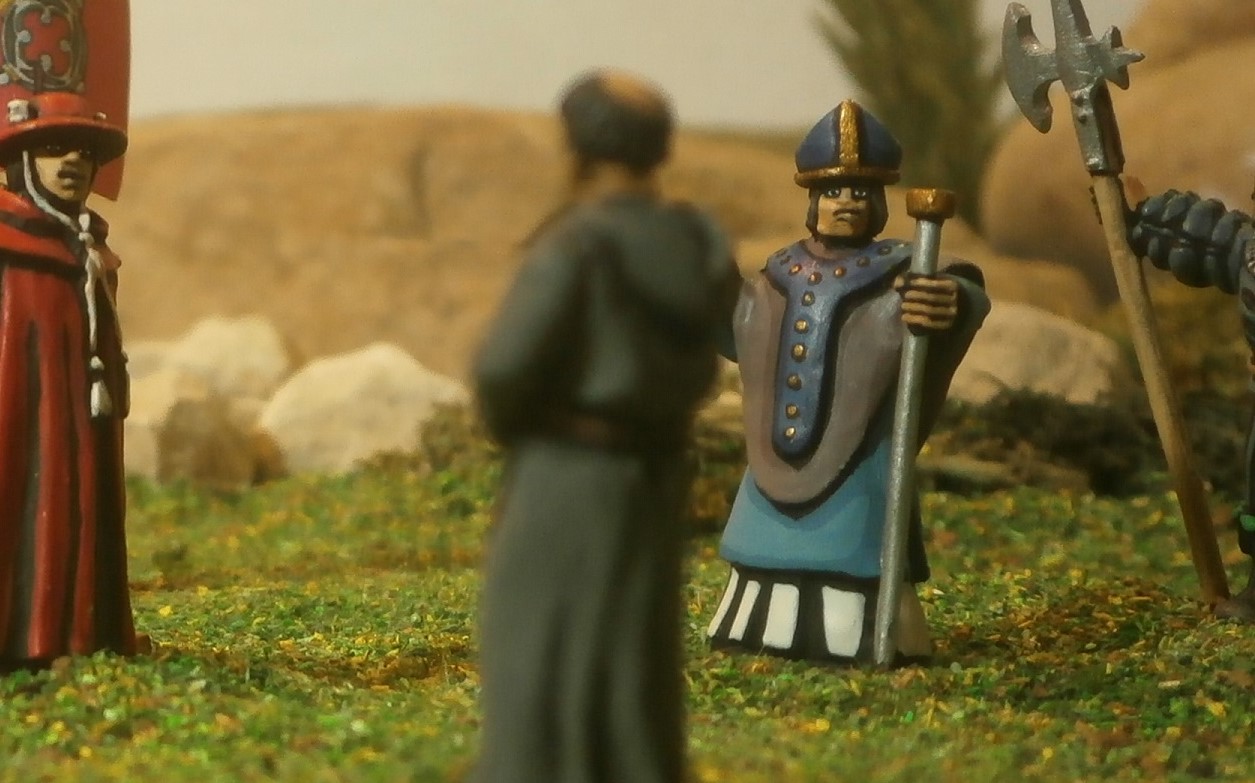
“Yes, father,” said the messenger.
“Then,” continued Tognazzi, a hint of derision evident in his voice, “considering the engine’s terrible potential and the mortal danger of merely approaching it, I suggest that the maestro should bring himself hither, rather than presuming to risk his holiness’s health, indeed his life.”
Bernado was aware of the fear the entire army felt concerning the bombard’s proximity. Its smaller predecessor had reportedly killed almost everyone within several thousand braccia. Yet, of course, the maestro would know this too. Indeed, what with his mathematical, architectural and mechanical genius, he would surely understand the consequences on a level others would find hard to comprehend.
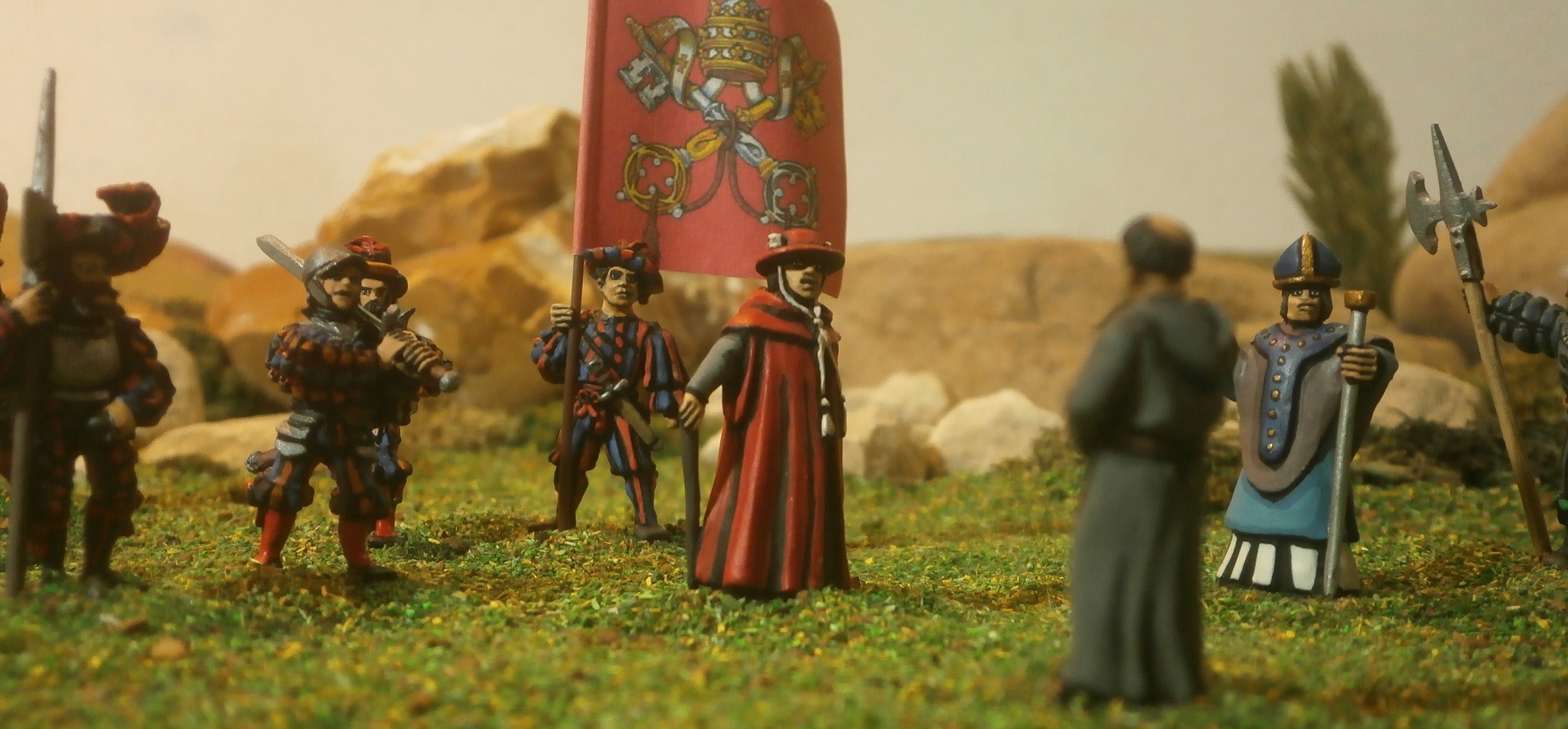
“Good father,” enquired Bernado. “Did Angelo ask that I attend him directly, at the engine?”
“He did, your honour.”
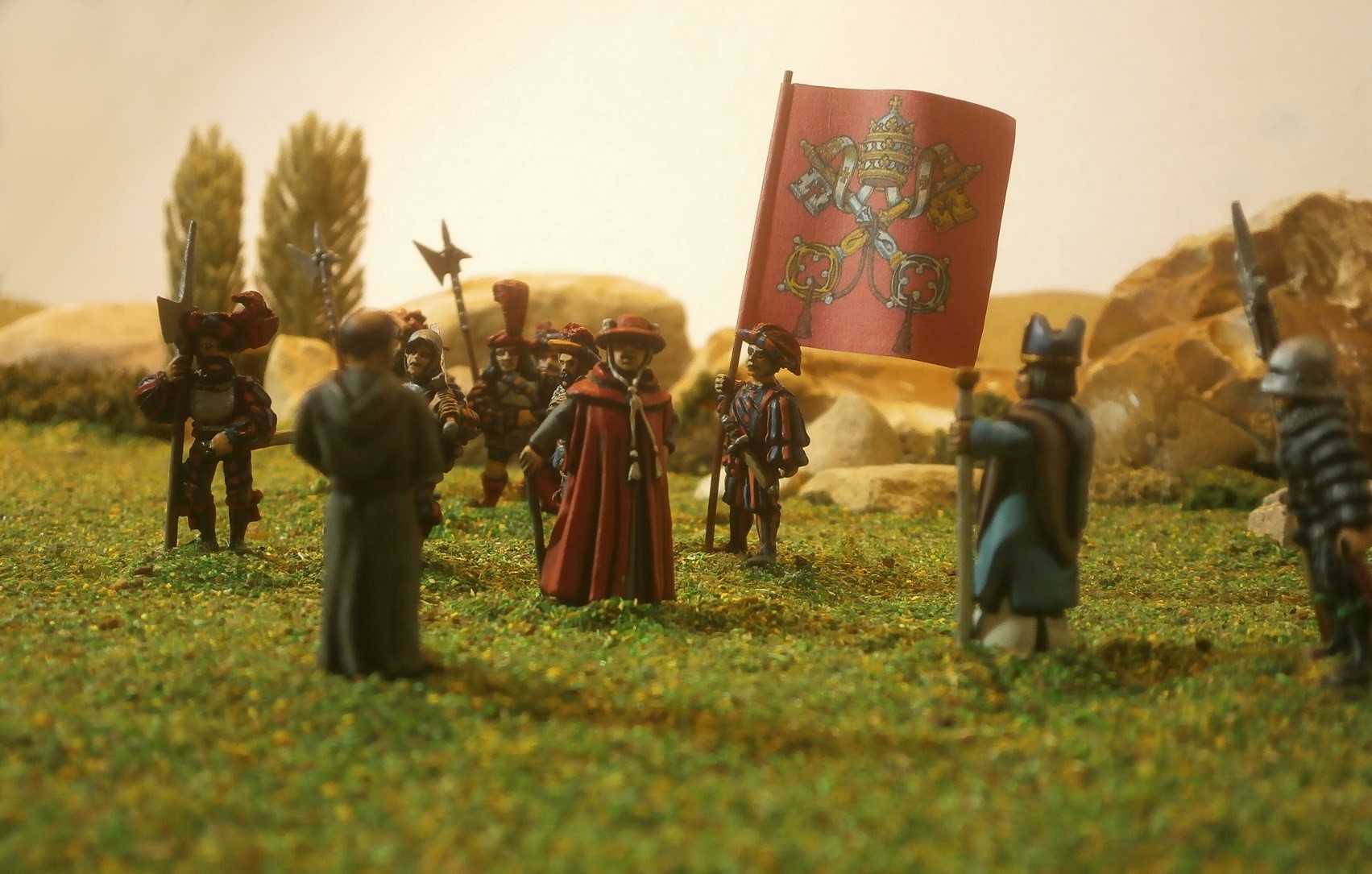
“Then it seems to me that he must believe it is safe to do so.”
Tognazzi looked uncomfortable. “Such a man as the maestro might think it reasonable to take risks with his own life, and undoubtedly does so regularly within his own studio, performing his experiments and spells, but he asks too much if he thinks his holiness such place himself at risk.”
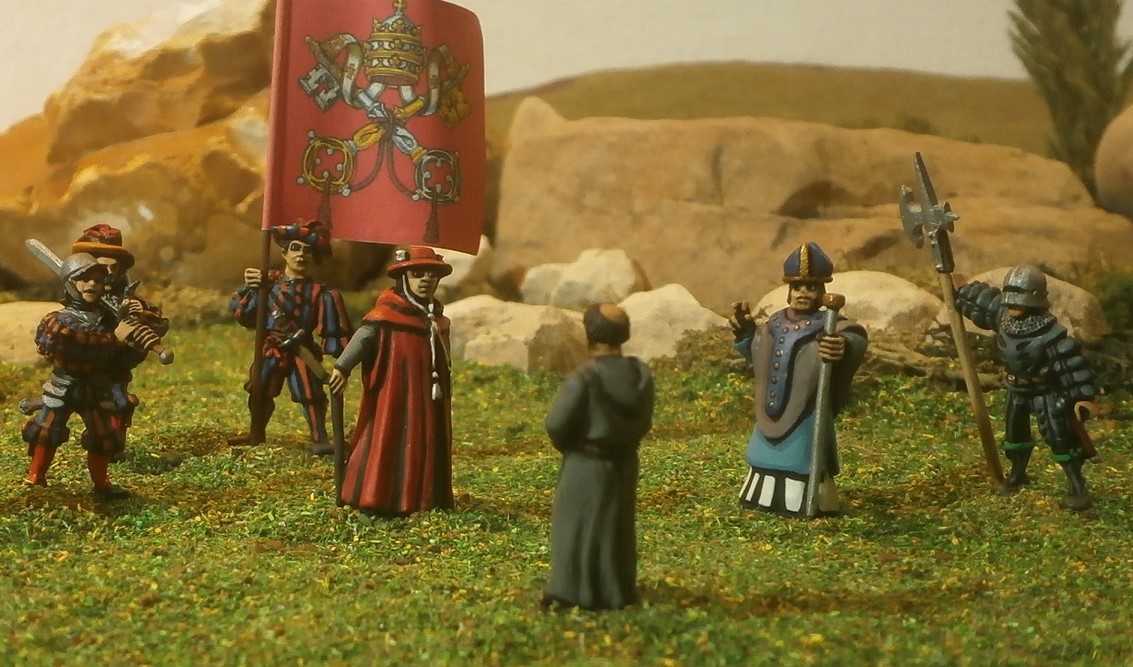
Bernado turned to Tognazzi. “Do not worry yourself, Father Flavio. Angelo is the one person I trust most when it comes to such matters. He, more than any other, is best equipped to ascertain the true nature and extent of such potential dangers.”
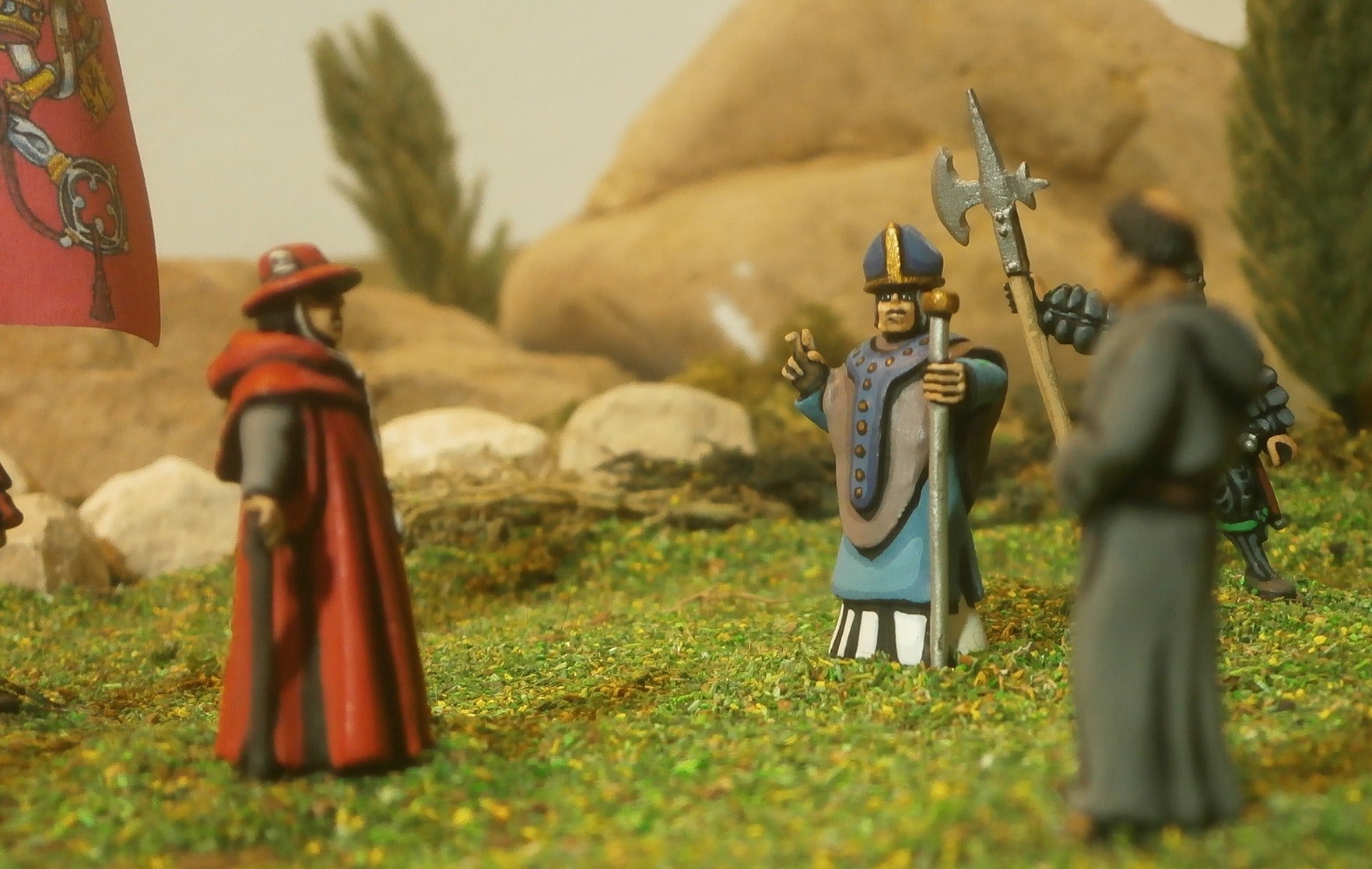
…
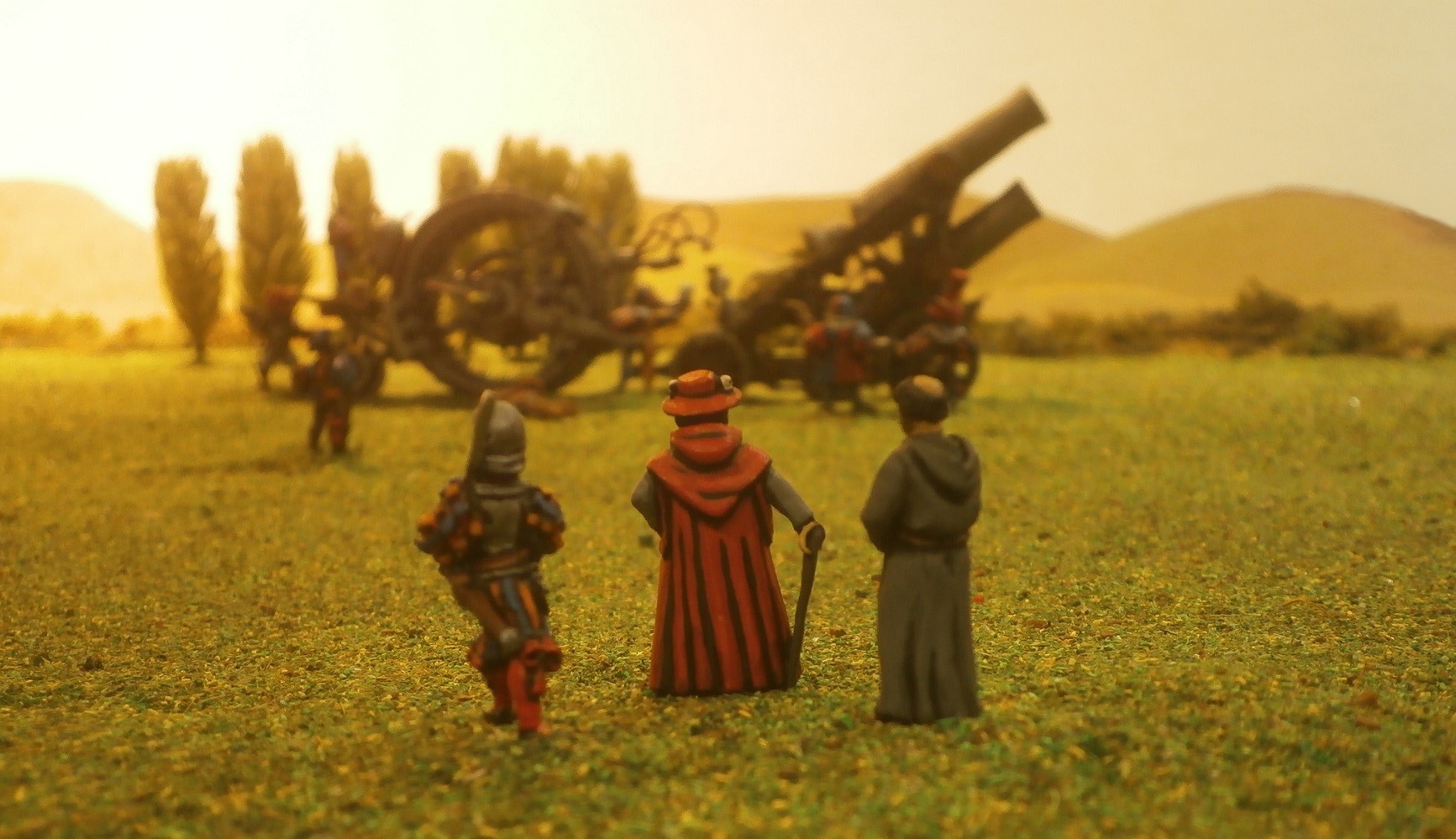
As he approached the engine, which stood exactly where it had ground to a halt when Father Uguccione and the bravi attacked it, he sensed immediately that the maestro and his companions seemed somewhat excitable. They stood close to the engine, some even clambering around it. Bernado had half expected to see buckets of water gathered close by, all the better to extinguish a sudden fire, sooth burns or even just cool some part of the engine that was beginning to boil. He had very much expected some sort of scaffolding erected around it to allow safe inspection of all its parts, or perhaps guy ropes pegging it firmly in place, to ensure it could not topple. Yet there was nothing.
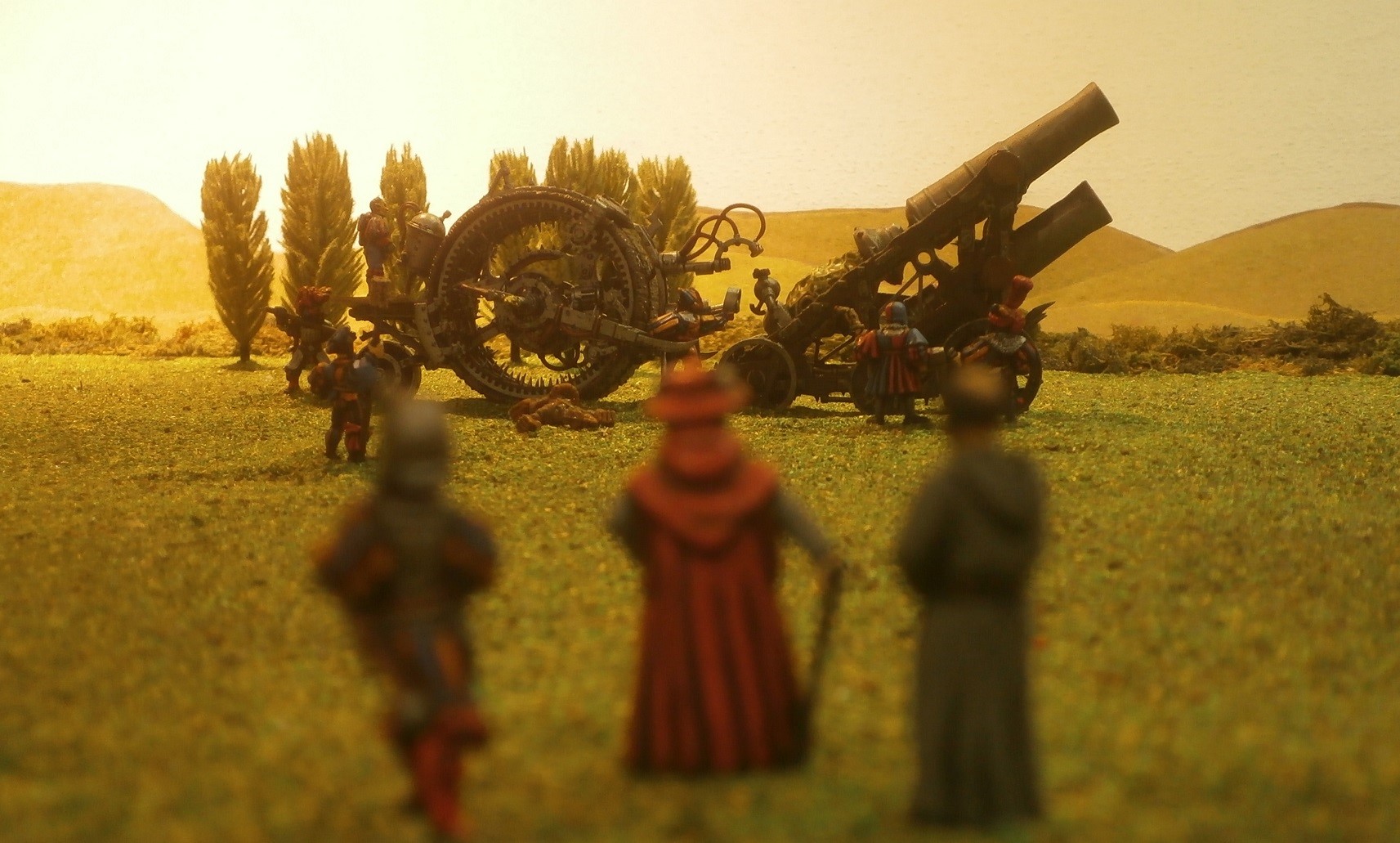
The reports concerning the engine’s predecessor had described how it poisoned the ground over which it passed, to a depth of several feet, killing both beast and flower, grass and insect, even the trees it trundled past upon its journey.
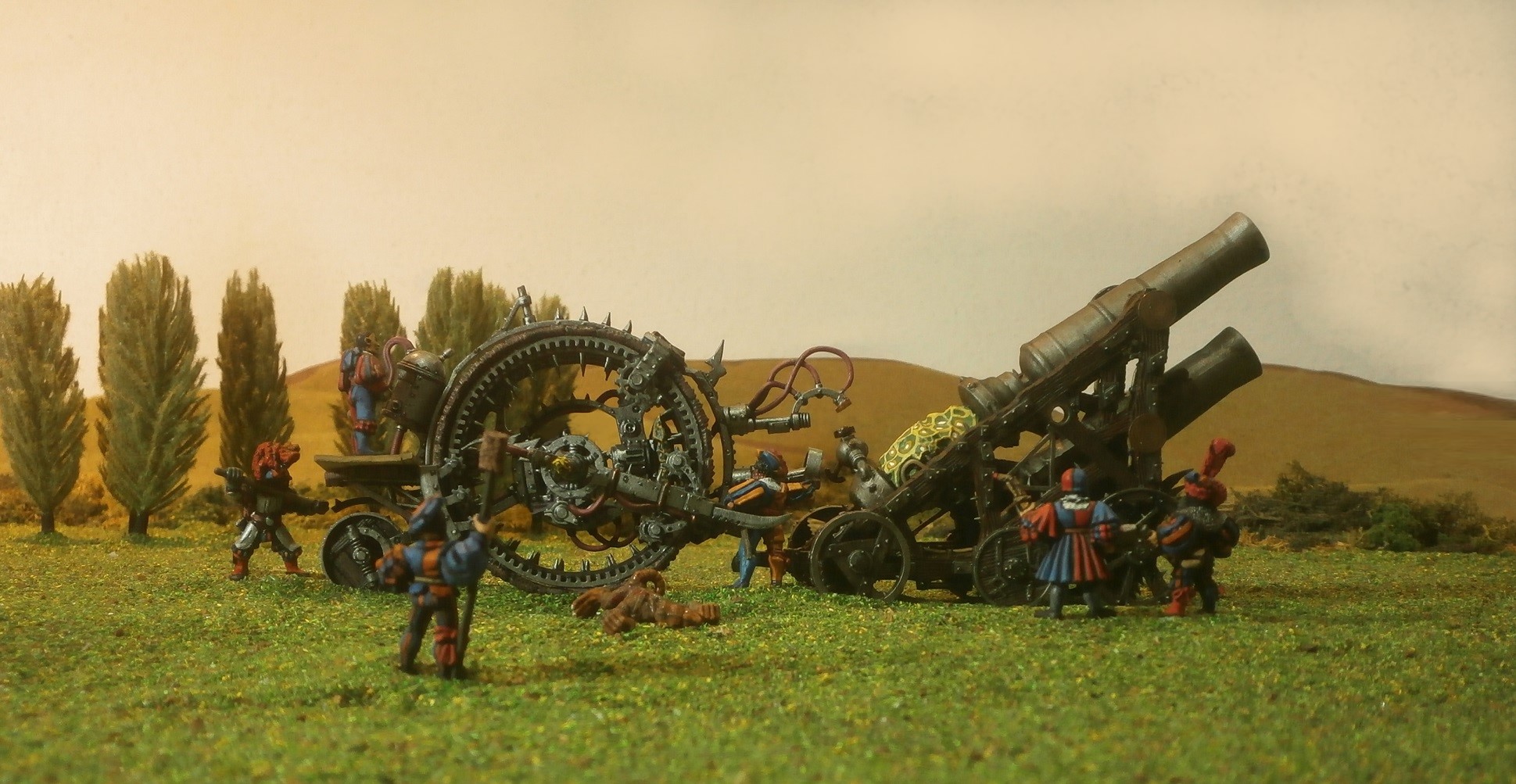
Here the grass was unscathed, apart from where the weight of the great wheel propelling the engine had churned up the ground – which was no more than what the maestro’s steam tank had done, and little more than that which result from passage of a company of mounted men at arms.
“Your holiness!” hailed the maestro, perhaps having sensed the trepidation in the approaching party. “Fear not, and approach. I can assure you it is safe to do so.”
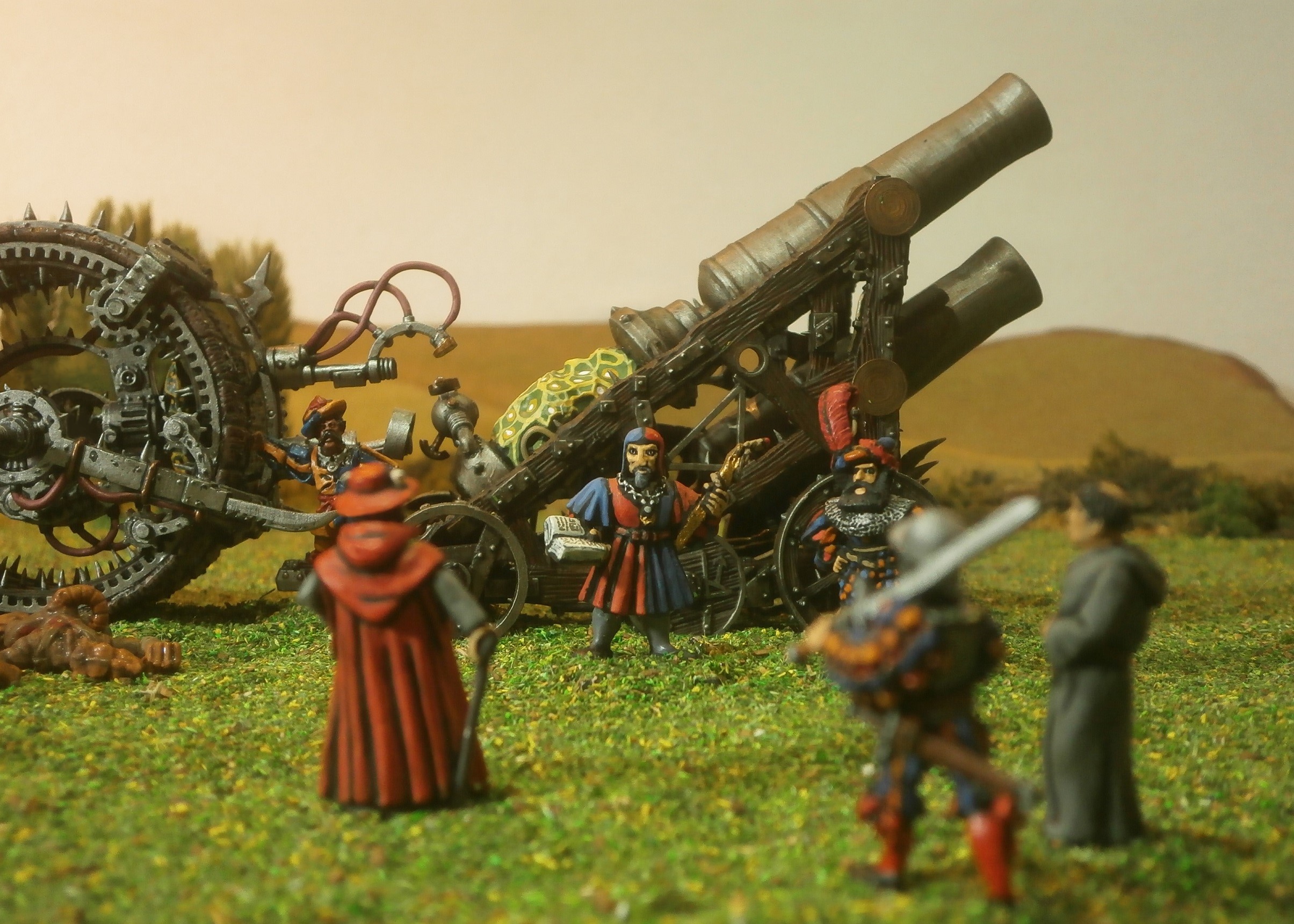
The maestro’s apprentices and journeymen stopped whatever it was they were doing to stand in respectable silence as the arch-lector drew near.
“I would not advise you to touch the sky-stones, of course” continued da Leoni, pointing to the strange, green, slightly glowing orbs mounted on projecting steel arms, while, somewhat strangely, not indicating the much larger chunk of warpstone directly behind him. “Nor should you run your finger along the rusted edges of the metal work. But otherwise, there is nothing here that can harm you.”
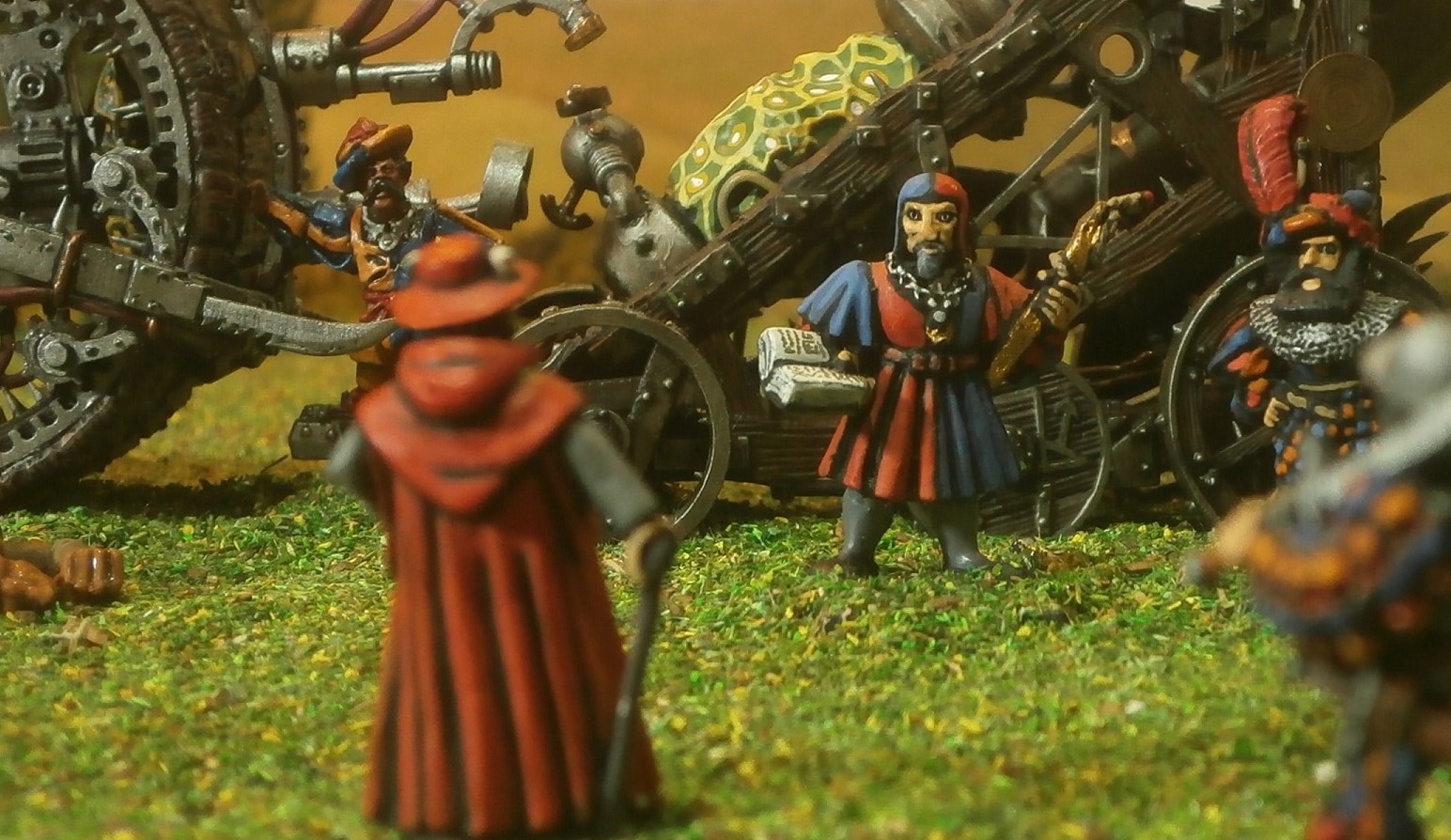
Bernado found this perplexing and wondered whether the engine had yet to be loaded with its deadly grenadoes – a thought that quickly turned into a new concern.
“So, it is not loaded?” he asked, eliciting a nod from da Leoni. “Then, where are the grenadoes?”
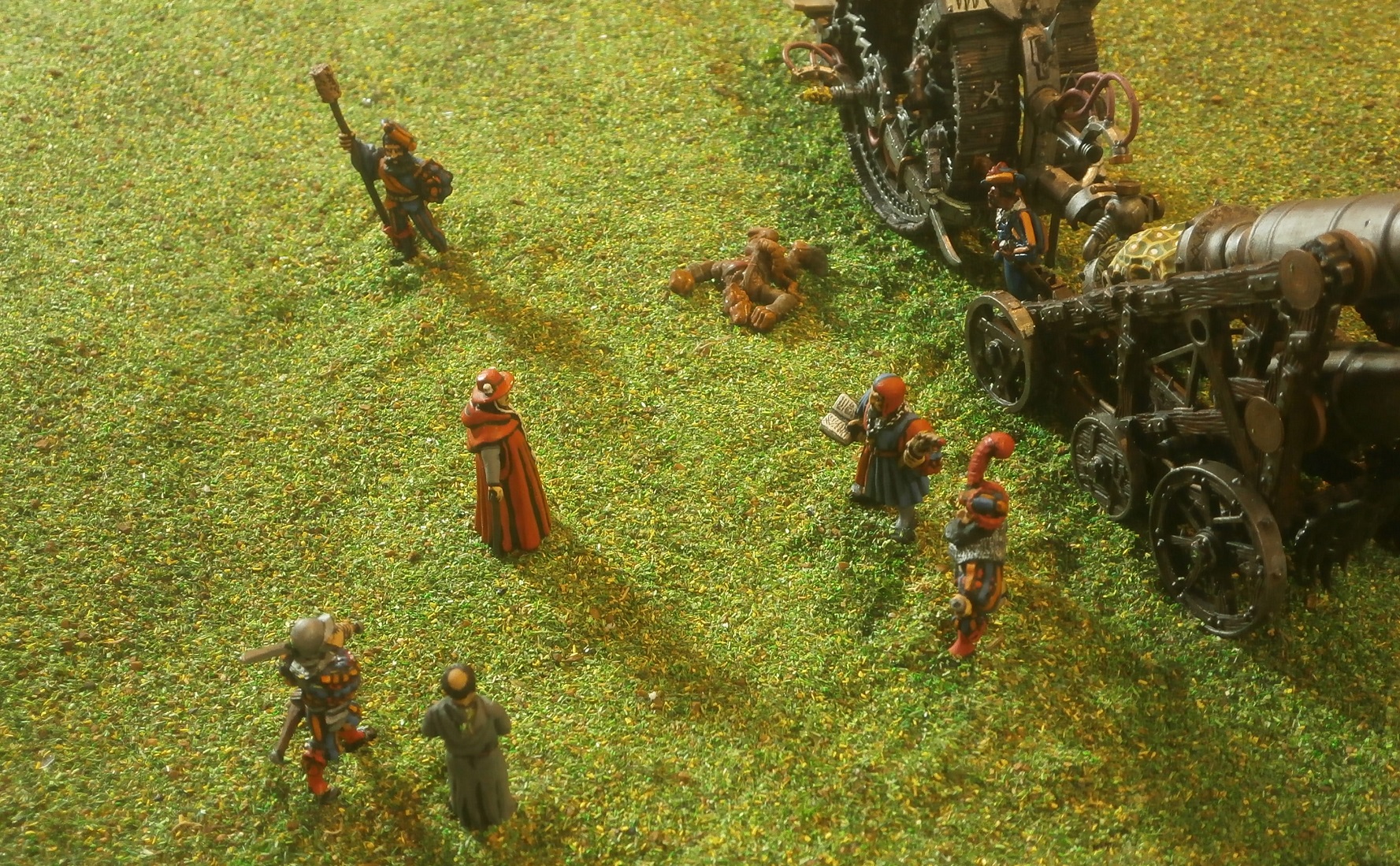
“Ah, now there’s a thing. None have been found, your holiness.”
It seemed to Bernado that the maestro was speaking as if presenting clues to a riddle – one which he had already solved. It was an attitude which seemed entirely inappropriate considering the power contained in said grenadoes. Were they close enough, perhaps even within a mile or two, then their detonation could bring death upon the entir army.
“I suppose,” said da Leoni, “the absence of grenadoes would explain why the engine was driven the way it was – carelessly, recklessly, directly towards, indeed plunging straight into, our men.”
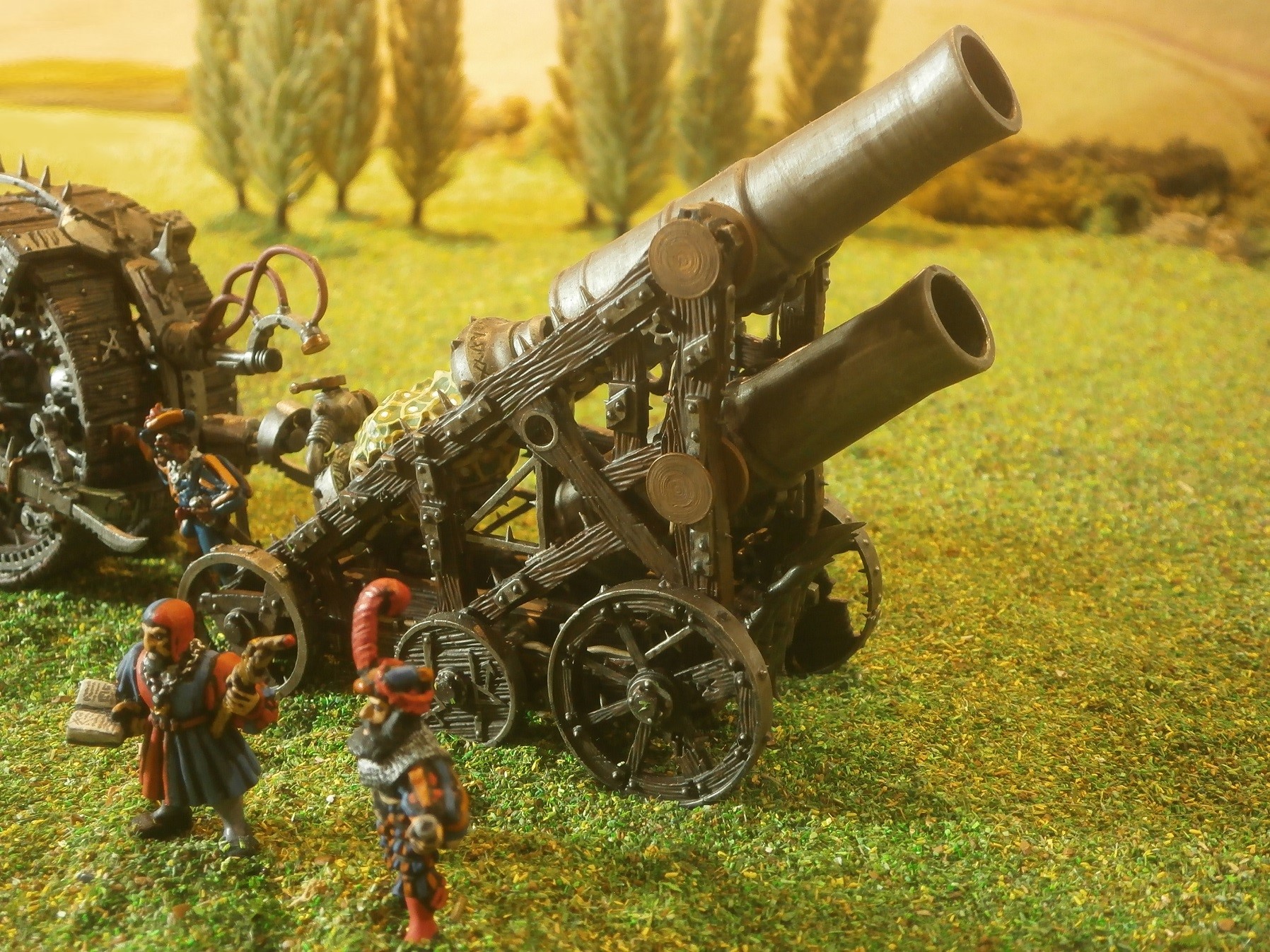
Bernado had himself been surprised by the engine’s behaviour in the battle, as if it were little more than a steam-powered battering ram. He had supposed it was due to the crazed carelessness of the ratto uomo controlling it, perhaps arising from desperation.
“Then there must be a baggage trayne lagging behind the army, carrying the grenadoes? suggested Bernado.
“One might suppose so, your holiness,” agreed da Leoni. “Yet were that the case, then the engine itself would surely be with said trayne? Why place it here, deployed with the army, as if it were a combatant?”

Bernado now knew for certain that the maestro was toying with him. He had long been aware that da Leoni was eccentric, often outspoken, and prone to carelessness when it came to proper social hierarchies, but to play such games over a matter as serious as this might be considered unforgivably impertinent.
“Good maestro, it is plain to me you know the answer to these questions. What I fail to understand is why you have made it a guessing game.”
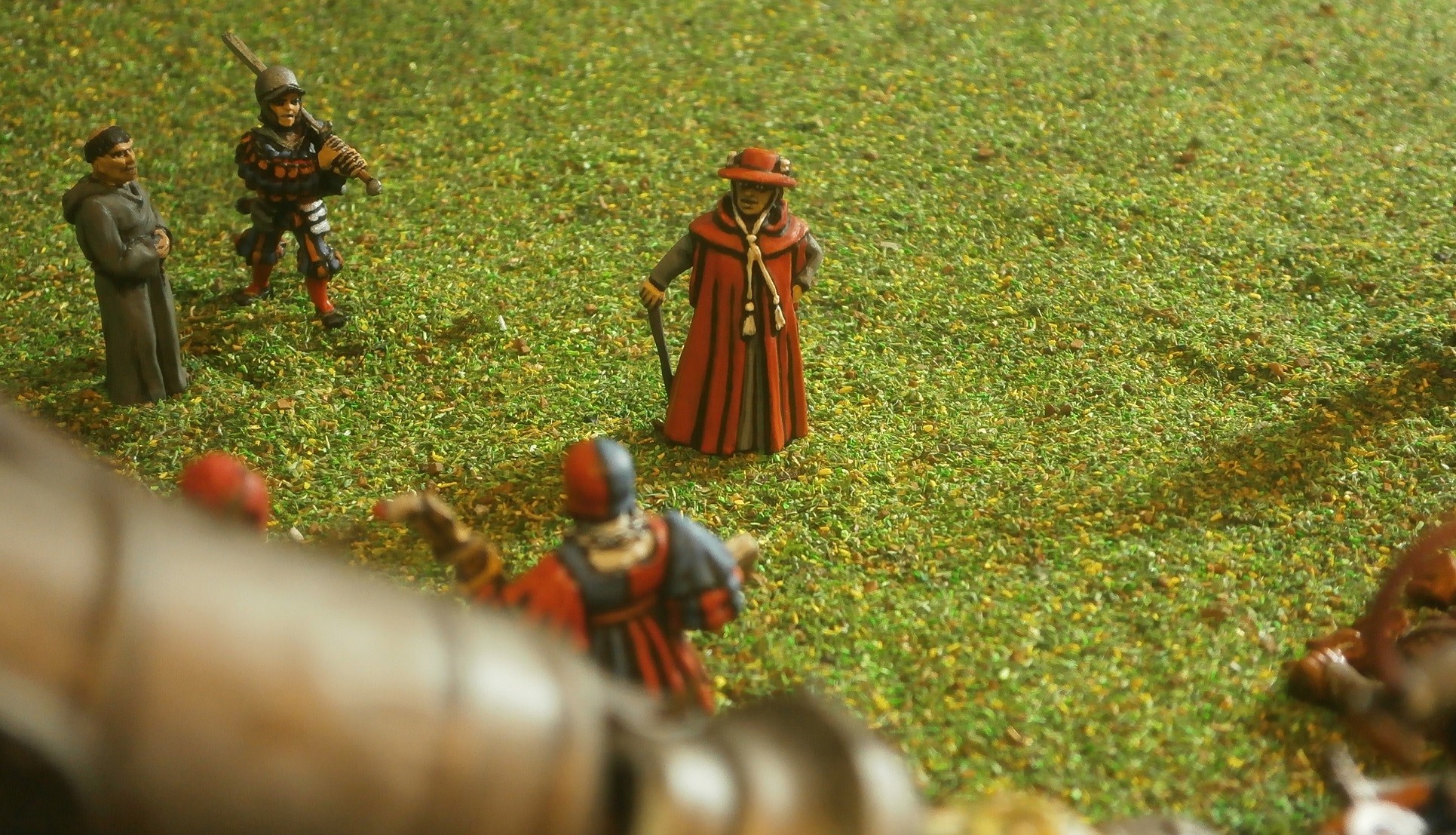
“I too found myself faced with a mystery recently,” answered the maestro. “Concerning why I was not part of the discussions considering the uomini ratto threat. Every indication had previously been given that my advice would be crucial – that I should be ready to advise in any way I could and at any moment. And yet, all was arranged without me – plans laid, preparations made. I was only called upon as the army marched forth, as if I was nothing more than an afterthought. Or was it that I am no longer trusted, your holiness?”
Bernado realised he should have known that the maestro would suspect something. The uomini ratto had demanded da Leoni be surrendered to them, as part payment to spare the city from the terror weapon. Believing that such knowledge would distract the maestro, clouding his thoughts and so diminishing his genius, he had thus ordered the demands be kept secret from him. Not only might the maestro fear what the ratmen would do should they lay their hands upon him, but he might also have become afraid of his fellow Remans, thinking that they might choose to sacrifice him for the city’s sake.
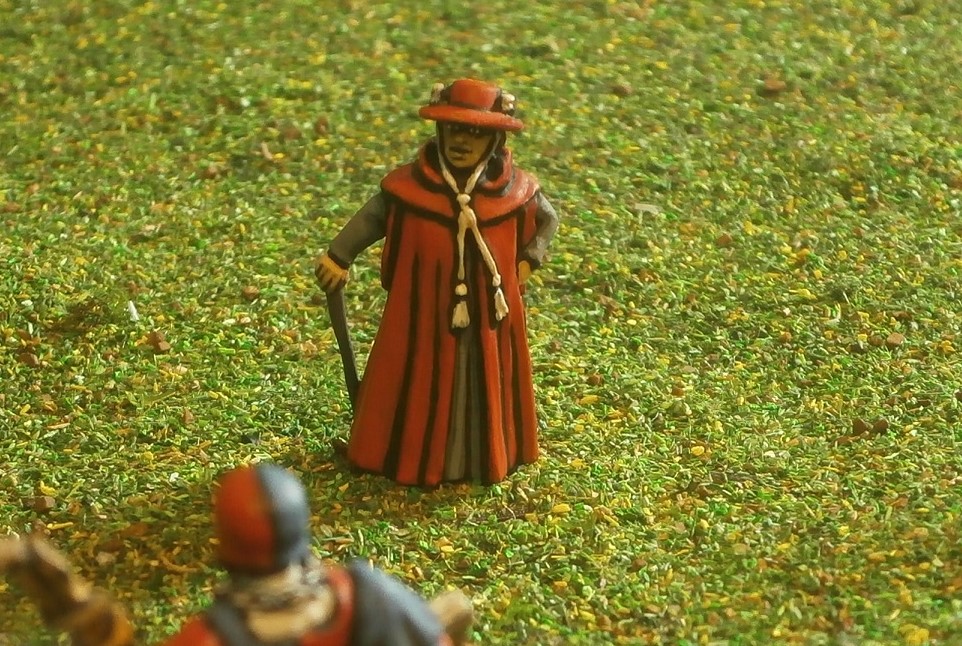
“I can assure you, you are trusted, Angelo,” said Bernado. “More than this, respected and loved. What you perceive as secrecy was for your own good. It is a riddle I am entirely happy to explain, for the danger, it seems, has passed. But first, indulge an old priest, will you, and yield an answer to this nightmarish riddle.”
Da Leoni had scrutinised Bernado as he spoke, as if measuring the honesty of his words, his expression, his stance.
“Good to hear,” he said. “And of course, I am only too happy to put your holiness, and indeed the whole of Remas, out of their misery.”
He strode over to the barrels, mounted perpendicularly on the carriage pushed before the wheel, and clunked his brass linstock against the iron.
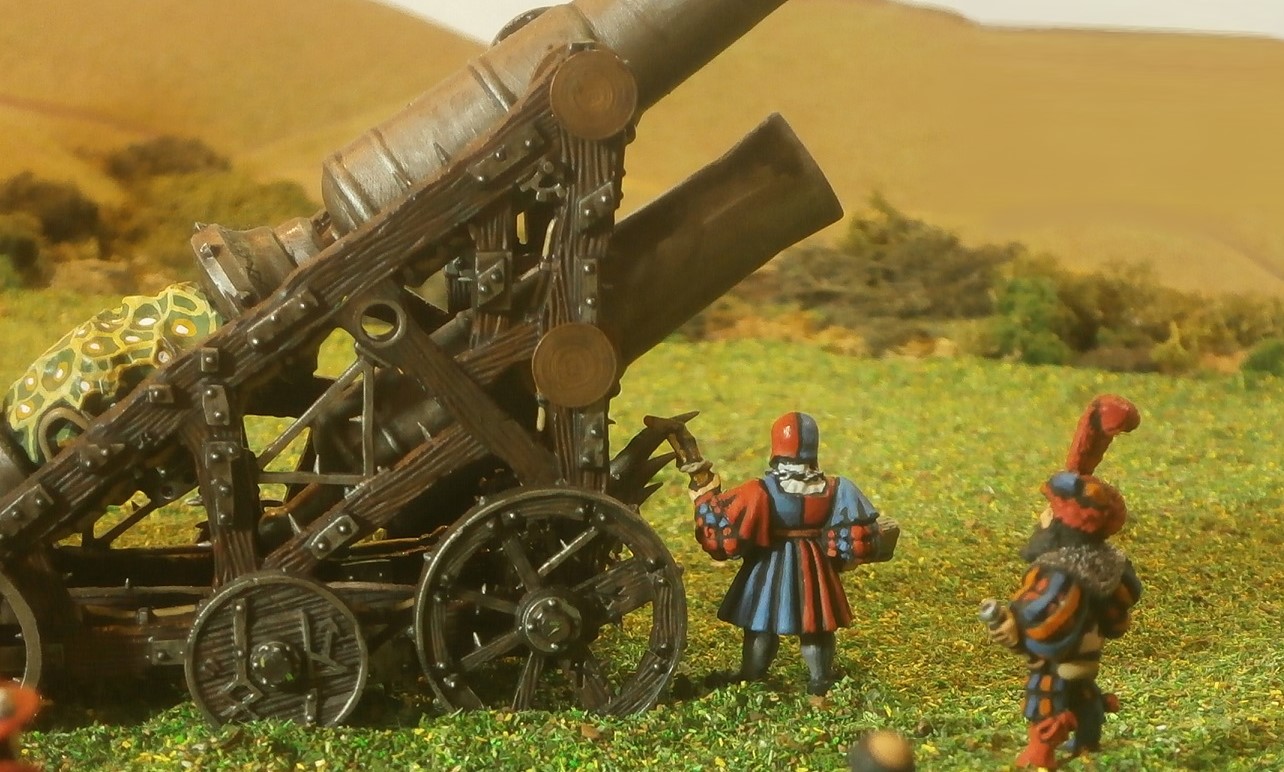
“This … isn’t real. It is an illusion, a trick. Nothing more than stage scenery. These barrels are unfit to fire anything more than a flash of smoke. They are thin, brittle, the casting riddled with flaws. While the whole thing is just strong enough to hold itself together while being moved, it could never be expected to launch a grenado. That massive piece of sky-stone behind the barrels is almost entirely impotent, perhaps having long since been drained of its power. The engine pushing it is real enough. The weapon itself is but the image of bombard.”
It looked convincing to Bernado. Yet, if what the maestro claimed was true, then it would be the final piece of the puzzle.
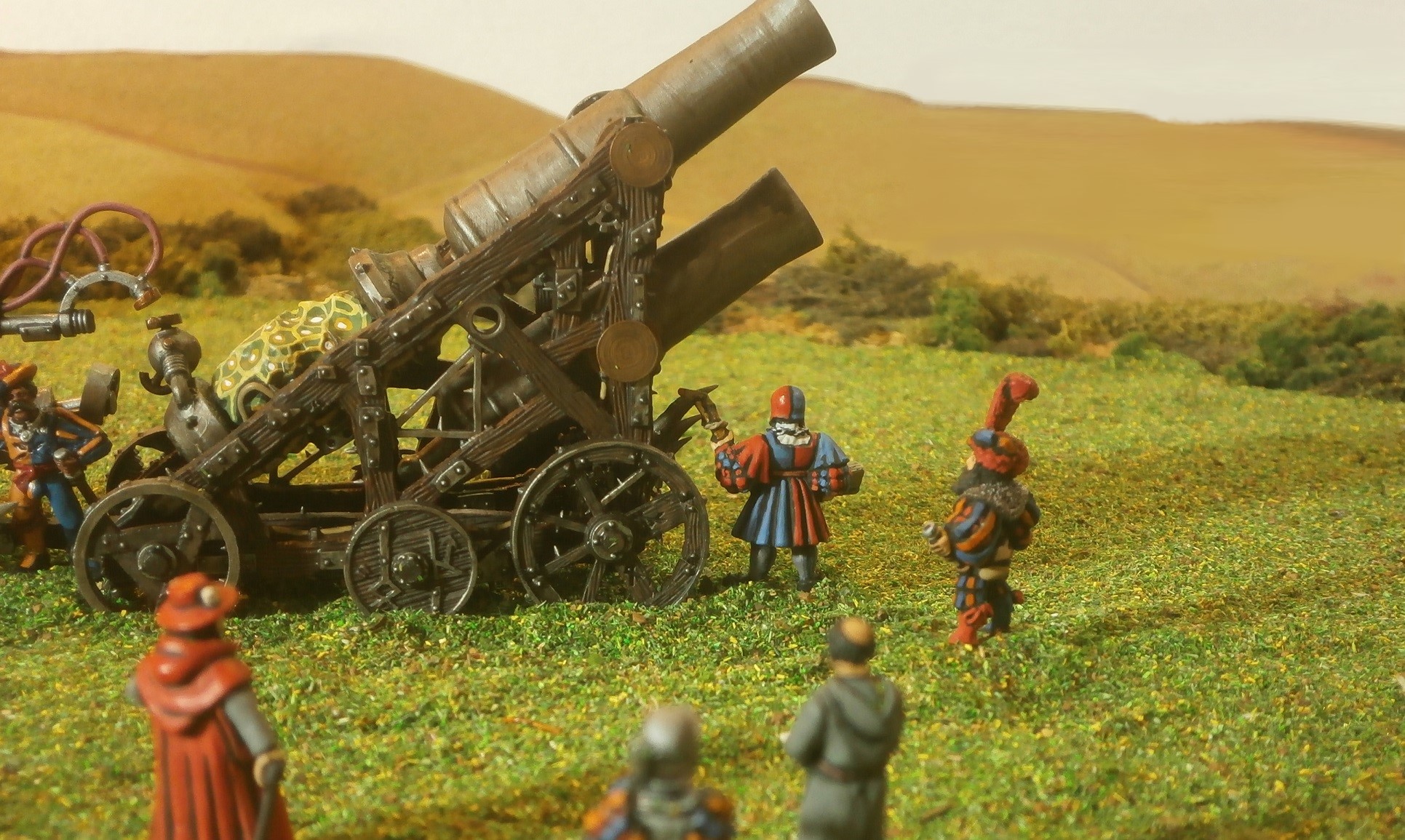
“The uomini ratto conjured a terrifying illusion for us,” said the maestro. “In the hope that we would yield unto whatever demands they made. Or cause us to flee, or to divide our forces, or merely to make us fearful as we fought.”

“We know they used such a weapon before, and to great effect,” said Bernado.
“I have no doubt, your holiness, that the bombard they employed at Campogrotta was a very real and truly terrible weapon of war. But it’s true purpose may merely have been to sew fear throughout Tilea. Indeed, it did not even need to launch its grenado successfully, for its own failure and subsequent explosion was sufficient to advertise its potency; to prove it was capable of fatally poisoning a vast swathe of land. Once that was achieved, then all they had to do was make a suitably convincing counterfeit; at little cost and presenting no danger to the army accompanying it. Such an imitation would be all they needed to make their threats.”
Part relief, part understanding, suffused Bernado. He began to laugh, allowing the kind of giddiness he had not felt since childhood to overcome him. And as soon as he did, the maestro joined him, then the others too.
“I mean,” said da Leoni in between the laughing. “Look at it! It’s ridiculous. As if such a thing could ever hope to work. Two giant barrels, on one carriage! It’s as improbable as a sword made of painted clay!”
“A tankard made of cheese!” shouted one of the maestro’s men.
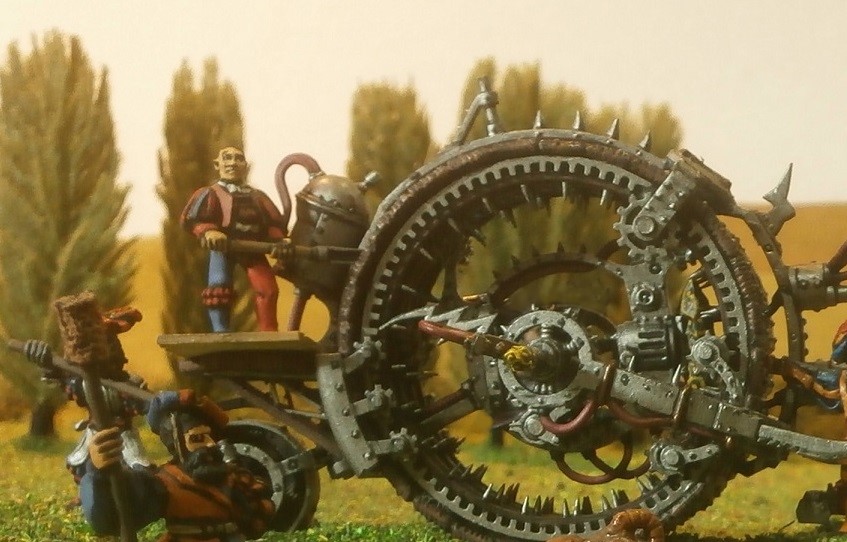
“A ship made of wool!” cried another.
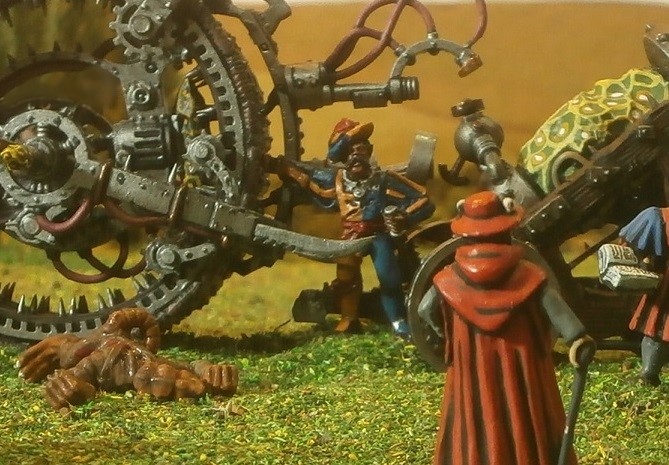
Oh, brilliant! Well played and well written.
LikeLike